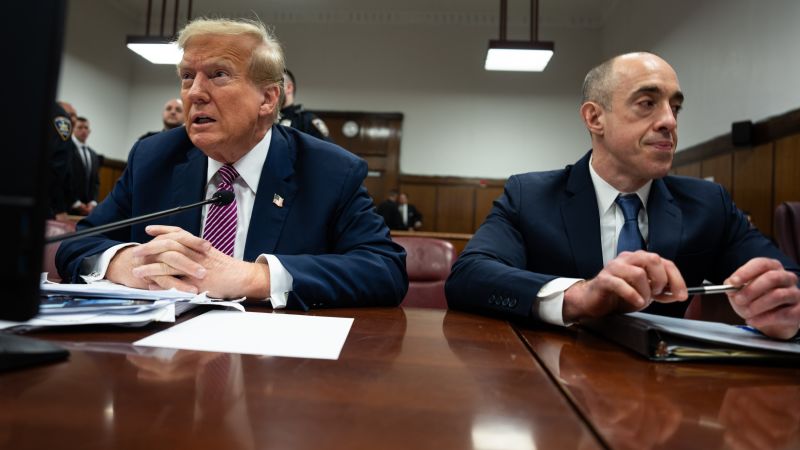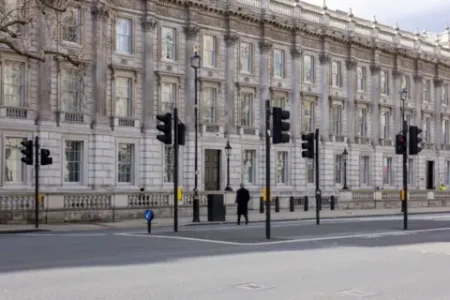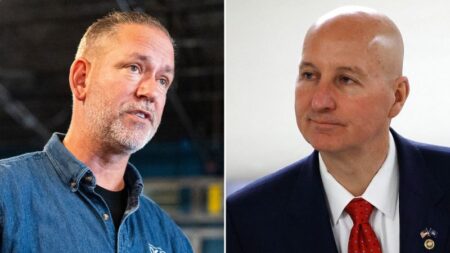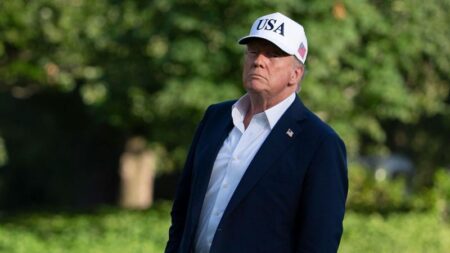In a troubling revelation that raises serious questions about the integrity of the U.S. Justice Department, a recent whistleblower letter details allegations against top officials, including Emil Bove, President Donald Trump’s former personal defense attorney nominated for a prominent judgeship. This allegation, which subsequently garnered media attention, outlines claims that senior Justice Department leadership intended to disregard court orders and mislead federal judges during a controversial effort to expedite deportations amid the spring of 2023. The letter was authored by Erez Reuveni, who had previously served as an immigration litigator within the Department before his dismissal.
The whistleblower correspondence, sent to members of Congress and independent oversight bodies, has prompted a closer examination of Bove, who is currently slated for a Senate committee hearing regarding his candidacy for the 3rd U.S. Circuit Court of Appeals. Reuveni’s letter specifically condemns Bove for allegedly suggesting in a March meeting that the Justice Department might need to inform courts to “F**k you” and ignore orders designed to halt the swift deportation of migrants to a prison in El Salvador.
Erez Reuveni’s poignant account provides a critical perspective on events leading up to his termination. Reuveni worked on the case of Kilmar Abrego Garcia, wrongly deported to a Salvadoran prison, and insists he was placed on administrative leave immediately after he disclosed the administration’s missteps to a federal judge in Maryland. His actions appear to demonstrate a commitment to adhering to legal standards, even in the face of internal pressure from his superiors. In the whistleblower letter, Reuveni also acknowledges that he refused to submit a legal argument that he deemed “frivolous and untrue,” highlighting his ethical stance amidst growing tensions within the Justice Department.
A response from Todd Blanche, a deputy attorney general and Bove’s close associate, labeled Reuveni’s claims as the product of a disgruntled ex-employee. He accused Reuveni of leaking information to the press in contravention of ethical guidelines. Blanche’s denouncement of the allegations contributed to a divisive discussion on adherence to the law within the office, with key figures like Chief Judge James Boasberg of the D.C. District Court expressing discontent at the Justice Department’s handling of immigration cases and the potential for contempt proceedings against officials involved.
The timeline of Reuveni’s ordeal began to escalate in mid-March when it was disclosed that the administration intended to expedite the deportation of detainees to a Salvadoran facility without abiding by necessary immigration processes. This controversial strategy, initiated by a proclamation from Trump based on the Alien Enemies Act, drew immediate scrutiny within the Department. During a meeting, Reuveni observed expressions of shock and confusion among attendees after Bove suggested the Justice Department might ignore judicial injunctions.
Reuveni’s documentary work over a series of weeks illustrates his persistent efforts to uphold the integrity of judicial proceedings, which were increasingly compromised by directives from Bove and other superiors. His lawyers articulated instances in which he was reportedly obstructed from gathering relevant information to support legal claims critical to cases he was handling. Amidst threats and intimidation, Reuveni emphasized his responsibility to ensure that the department complied with court orders, stating that other legal professionals were knowingly misleading judges regarding immigration procedures.
As the controversy surrounding Bove’s nomination and Reuveni’s allegations unfolds, various stakeholders, including former Justice Department officials, have publicly called for a reevaluation of Bove’s confirmation. They argue that someone who advocates disregarding court orders should not ascend to the federal judiciary. Although these voices from the Democratic side of the aisle seek accountability and reform, it remains a daunting challenge to amass a political consensus among Republican members to raise significant opposition against Bove’s appointment.
In light of these serious allegations and the ramifications attached, the situation presents a crucial moment for the establishment of legal norms and accountability within the Justice Department. The resulting dialogue from this whistleblower letter emphasizes an urgent need for transparency, adherence to due process, and the overarching need to restore faith in the legal system amidst politically charged agendas. As investigations continue to unfold, the outcome may potentially set a critical precedent for how similar situations are managed in the future.











